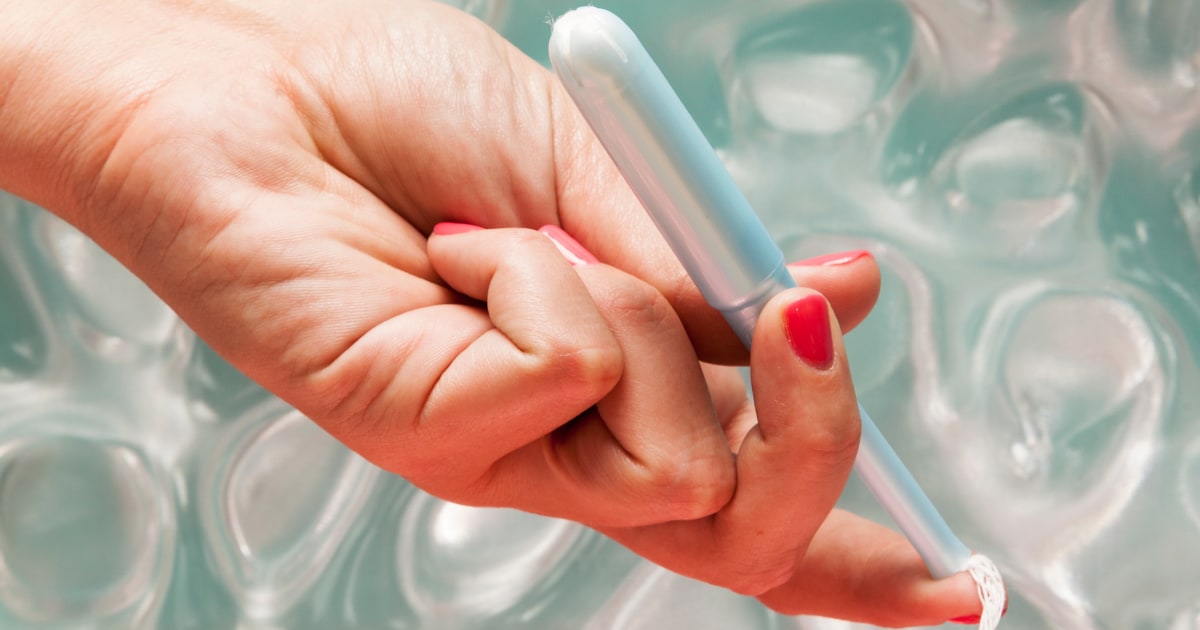Over a lifetime, period products in the U.S. cost a total of around $6,000 per person, according to research published in 2021 — and that’s before tax.
In 21 states, a sales tax of between 4% and 7% applies to items like pads and tampons, making them more costly, data from the Alliance for Period Supplies show.
Most states don’t tax certain essential goods, such as grocery store produce, canned food and prescription medicines. But in states with a “tampon tax” — a term that usually applies to tampons plus many other menstrual care products — these products are considered “luxury items.” (Broader still is the so-called pink tax, which isn’t an actual tax and refers to instances in which items marketed toward women, such as razors, deodorants and shampoo, cost more than equivalent products marketed toward men.)
Over the last four decades, states with sales tax have been enacting laws that eliminate such taxes on menstrual products. Minnesota was the first to do so in 1981, and 23 others have followed suit, along with Washington, D.C.
Texas was the most recent: Since September, there has been no state sales tax on period products there. In Kentucky, two bills that would waive its tampon tax — one Republican-sponsored and the other Democrat-sponsored — were introduced last week.
The map below shows which states have tampon taxes and which don’t. Alaska, Delaware, Montana, New Hampshire and Oregon don’t have sales tax on any products.
Lacey Gero, director of government relations for the Alliance For Period Supplies, said Southeastern states often follow Texas’ model for their own legislation, so more may eliminate tampon taxes in the coming years.
“We’ve already heard from states like Alabama, where there is going to be a big bipartisan push for legislation to exempt both diapers and period products from sales tax this year,” she said. “So I think the wave is already happening.”
Kentucky Rep. Lisa Willner, a Democrat who introduced one of the state’s two bills aimed at the tampon tax, said legislation in other states may bode well for her own effort.
“Kentucky is a deep red state, so seeing this be successful in other red states absolutely is a very hopeful sign that this need not be a partisan issue at all. It’s a public health issue,” she said.
Roughly a quarter of teens and a third of adults reported having trouble affording period products in a 2023 survey from the underwear brand Thinx and the nonprofit organization PERIOD. The issue is more pronounced among Black and Latinx people compared to white people.
Many public health experts see period products as essential goods: If they’re harder to find or afford, people may stretch a particular product’s use longer, which can raise the risk of infection or toxic shock syndrome — a rare, life-threatening condition. Some people may also miss work or school while on their period if they don’t have access to menstrual care products, or forgo other basic necessities in order to purchase them.
“It’s like, ‘Do I spend money on gas to get to school or do I buy period products? Or, when I’m in class, I might be concerned about bleeding through clothes — so do I go to class or do I just skip it?'” said Jhumka Gupta, an associate professor of public health at George Mason University.
Gupta’s research has shown that not being able to afford menstrual products is linked to a higher likelihood of depression.
There are still several obstacles to eliminating the tampon tax nationwide.
“One of the things that states are grappling with right now is tense and stricter budget cycles are coming up, so there is a fear of loss of revenue,” Gero said.
Willner said that’s a challenge in Kentucky, where the income tax rate has decreased over the last two years. A state policy passed in 2022 aims to gradually lower individual income taxes until they’re eliminated, as long as a set of fiscal requirements are met.
Willner added that some state legislators also question whether the tampon tax should go away.
“There are a number of my colleagues who don’t see the importance of this, or they’ll say, ‘It’s just such a small amount of money’ or, ‘Why is this even needed?'” she said. “Of course, the people who ask those questions tend to be people who aren’t affected by sales tax on menstrual products.”
In addition to waiving the tampon tax, Willner’s bill would set aside $2 million for Kentucky public schools to supply free menstrual products to students in grades 6 through 12. The Republican-sponsored bill does not call for such funding. Willner said she added the provision after hearing from middle and high school students about the embarrassment and anxiety they felt over having or expecting their period at school.
“It brought back memories for me,” Willner said.
However, she added, that provision could make it more challenging to get the bill passed.
“I have to say I’m a little skeptical that it will,” she said.
In 25 states and Washington, D.C., period products are supposed to be provided to students for free. Arizona, Michigan, Minnesota, New Mexico, New Jersey and Ohio all passed legislation creating such policies last year. But not all 25 states allocate money for this purpose, so it’s often up to schools to apply for grants or pay for the products themselves.
Gero said that advocates for free period products are pushing for additional legislation that would expressly set aside funding for schools to provide them.
In the future, states might also consider bills that make period products free in public restrooms, she added. Ann Arbor, Michigan, became the first city to do that after passing a bill in 2021.
“We’re just excited that more local level initiatives are happening, because it’s putting the pressure on the states to take more action,” Gero said.











